
Rs. 2.5 lakh turns into Rs. 1.21 crore in 12+ months from penny stock
When Sanat Kumar, a resident of Azadpur, Delhi, walked into the offices of the income-tax department one fine morning, he was expecting to receive accolades from the officers from his brilliant stock picking ability.
After all, Sanat had done what all of us aspire but few achieve.
He had raked in a mammoth gain of Rs. 1.21 crore from a penny stock named Cressanda Solution Ltd.
Sanat bought 25,000 shares of Cressanda for Rs.2.5 lakh on 31.10.2011. He sold the stock during the period 27.06.2013 to 23.09.2013 for Rs.1.21 crore.
He displayed sagacity by gently off-loading his shares in a rising market.
As against the purchase price of Rs.10 per share, Sanat sold the shares between Rs.476 to Rs.503.90 per share.
His gains were a mammoth 282x.
Meticulous paper work but no idea about business model of company
Sanat and his broker, Indo Jatalia Securities, ensured that the paper work was meticulously maintained. All transactions were through banking channels and were properly supported by contract notes and bills.
However, Sanat goofed up big time because when the tax sleuths grilled him about Cressanda’s business model, he admitted he had no clue.
“I am not a promoter or Director of Cressandra and I have no idea about the business model,” Sanat whimpered with tears in his eyes.
Justice Kuldip Singh of the Tax Tribunal had no sympathy for Sanat and tore him apart.
“We are of the considered view that when assessee is the beneficiary to the maximum extent, he cannot be allowed to step aside the questions because in the ordinary course of business, no one can be expected to invest the amount in a company having no profile in public domain. First of all, anybody who makes an investment in the company by way of purchase of shares, he used to peruse the profile and go through the balance sheet of the company,” it was observed in a dry tone.
Sanat was also hauled over the coals for not having Cressandra’s balance sheet with him.
“The assessee has also shown his helplessness to bring on record the balance sheet of the company which further strengthens the findings that Cressanda Solution Ltd. was just providing accommodation entries in form of fictitious LTCG claim to evade the taxes,” the Ld Judges held.
In a moment of inspiration, Sanat argued that the massive gains had arisen because Cressanda had fortuitously amalgamated with another penny stock named ‘Smartchamp IT and Infra Ltd‘.
The argument was brilliant but did not impress the Court much.
They dismissed it by holding that it is a “common modus operandi” of penny stock companies in order to provide improbable capital gain to the investors.
If Sanat Kumar is such a whiz-kid in stocks, how come he does not have other multibaggers in his portfolio?
Sanat was badly trapped when the judges asked him to show the other multibaggers in his portfolio.
He had none.
This sealed his fate.
“Neither in the past nor in the subsequent years, assessee has indulged into any such investment having huge windfall. Had the assessee been so intelligent qua the intricacies of the share market, he would have definitely undertaken such risk taking activities in the past or future by making such investment in the unknown stock. So, we are of the considered view that what appears to be apparent in making investment by the assessee in unknown stock is not real when examined the whole transaction of sale and purchase of the stock with huge windfall to the assessee,” the Court held.
Transaction is a sham and LTCG is bogus
Ultimately, Sanat’s worst nightmare came true.
All his meticulous efforts at generating the tax-free LTCG came a cropper.
“Cressanda Solution Ltd., having no profile, financial growth, risk factor etc. available with the assessee, whose shares were purchased @ Rs.10 per share by the assessee and sold @ Rs.476 to Rs.503.90 per share, is merely a sham transaction credited to get the bogus profit at astronomical rate under the garb of LTCG in connivance with the entry providers to make undisclosed income as disclosed one by evading the tax,” the Judges held.
Will Sanat be prosecuted for tax evasion?
Sanat’s biggest worry at the moment is not that he has to pay the taxes with interest and penalty for the ill-advised attempt to make tax-free LTCG but that he may be sent to jail for tax evasion.
According to a press report, the possibility of prosecution and imprisonment will soon become more real for tax offenders, thanks to the new guidelines issued by the Central Board of Direct Taxes (CBDT). The new rules, effective 17 June, plugs a loophole in a tax provision that allowed tax evaders to escape imprisonment by paying up a little extra.
Also, Firoz Nadiadwala, the well-known Bollywood producer who made blockbuster movies like “Welcome”, was unceremoniously sentenced to 3 months of Rigorous Imprisonment for tax evasion of a paltry sum of Rs. 8 lakh.
Hopefully, Sanat may be allowed to file a mercy petition and plea-bargain his way out of Jail by paying a small compounding fine!

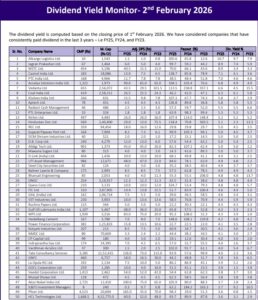
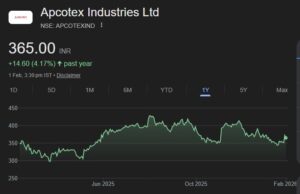
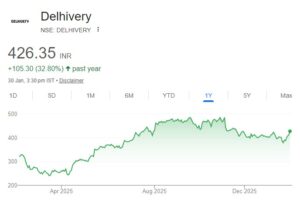

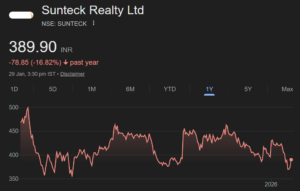
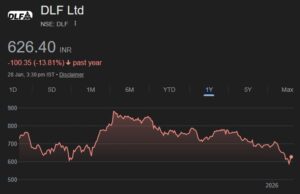
I’m still trying my maths to get the gains as 282x because my calculator shows that it is 48.4x.
Looks like judgement is wrongly decided. How can gain be taxed as bogus only because investor is not well versed with business model and has no knowledge of B/s.
Lot of people invest based on advice and without much knowledge of details of company.
Also, appears Court was influenced by 282x gain that it is an astronomical gain. Maybe if they thought gain was only 48x they could have taken different view of the matter.
I am sure Judges must have got convinced that he was ‘Benami’ and got used by Operator-Broker-Director nexus. Had not seen a case wherein, you just picked some unknown only one stock, never invested previously in stocks at all and ended up striking rich. It is classic story with most of the small caps in India. This story somehow came in to light as it was easy to single out but many could not due to involvement of scores of investors.
The judgement is definitely bizarre and out of context and syn with the existing laws. How can you penalize a person for not possessing knowledge about the company one has invested. It may be sheer luck of the person that he amassed such good fortune at one company. Unless the nexus is proved, the court judgement is wrong and bad in law.
How about hundreds of investors who invest in many “start-ups”, the business model is extremely hard to understand by common investors, still they invest in these start-ups only with the hope that ‘some’ of their investment would pay them handsomely. Now you cannot penalize every investor just because he had no knowledge about the company’s business model.